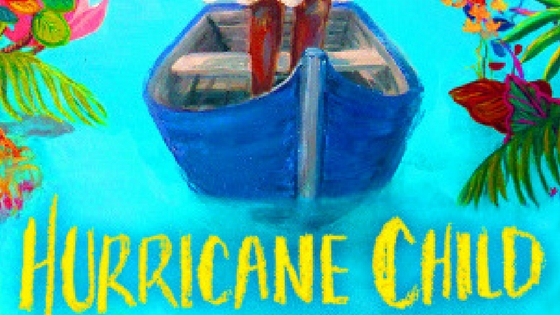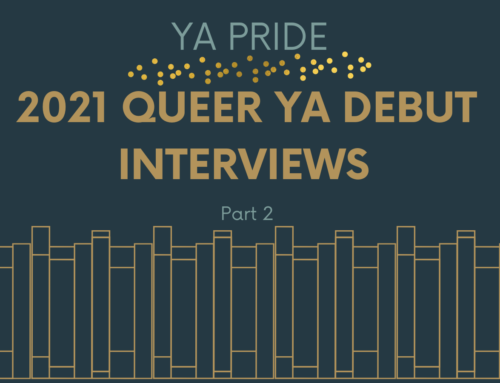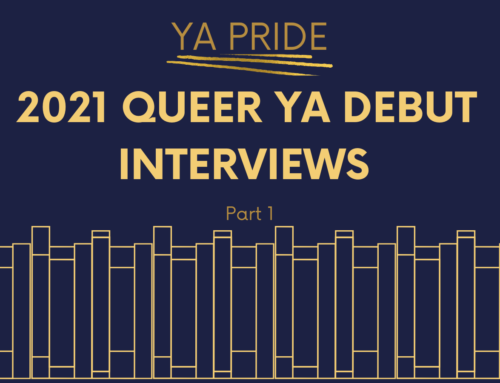Pride Month Blogathon: Day 10 – Introduction to Pride Month Blogathon
by Kheryn Callender
I didn’t like myself very much when I was younger. I was the only black student in my private school for a few years, and whenever I left my school, which was deep in the countryside where many white people from the states lived, I was surrounded by locals from St. Thomas who thought I acted too snobby, who thought I spoke with a stateside accent because I didn’t love my island, who thought I acted too “white.” It seemed wherever I went, whichever community I was in, I never really belonged.
It didn’t help that I knew I was different in other ways: I couldn’t put my finger on it, and I didn’t know what it was called, but I began to read books about boys falling in love with boys and girls falling in love with girls, and I knew there was something about these stories that spoke to who I was, also. I began to write stories like this too, and my favorite character was one that had an unknown gender, where no one could look at them and decide their identity.
Fast forward a few years: I left St. Thomas to go to a small college in New York where I was, once again, one of the few people of color. But at least in college, I found myself surrounded by people who were openly gay—and proud of it, too. Words I’d only heard of in negative contexts, like “queer”, were being used not only casually and in positive ways, but in classrooms. My language, my identity, my world began to shift as I began to think of possibilities for myself. I told my roommate, “I didn’t even know it was an option for me to be gay.” After all, the stories with gay boys and girls, and even the character I’d written and with a non-binary gender so many years before, were all white.
A memory is seared into my mind: one where a family member debated whether black people from the Caribbean could be gay. “That’s a white thing,” he said. “And if any black person from the Caribbean thinks they’re gay, it’s only because they met a gay white person.”
I’d known he was wrong, but for some reason, I never thought that being a queer person could be my experience. I knew that my assumed identity of girl who falls in love with boys wasn’t right, but every story I’d read, every TV show I’d watched, never had a queer person of color. Every queer person I’d ever seen in books and TV and movies, until college, had always been white.
Sometimes I still struggle with ideas of how I’m “supposed to look, supposed to act”, when I don’t have many role models to validate myself, to see myself in, to feel like I belong. But once I was in college, I made friends who were queer people of color. I watched TV shows like Noah’s Arc and The L Word that featured main queer characters of color. And more and more, I could see that my own feelings, my own identity, connected to the queer characters surrounding me. It was easier to see that my identity connected with the queer community once I could actually see myself—people who looked like me—in that community.
The power of stories and books never escapes my attention. I didn’t like myself when I was younger because I thought I was too different from everyone surrounding me—too different from the white students at my school, too different from the black locals in St. Thomas, too different from the queer people I saw in books and on TV. My loneliness, my isolation, often grew to a point where I didn’t want to be alive anymore, and I considered taking my own life for years. How different would my life had been if I’d had books about young queer kids of color like myself? Would I have realized I’m not so different after all? Would I have felt just a little less alone?
It’s been said before many times, but it bears repeating for anyone who might not yet be convinced: books save lives. They connect readers—and let some know that they’re not as alone as they think. In a world like today, with an administration like the one we must suffer, where violence is celebrated and perceived difference is feared—and where people are taught to react to their fears with violence—books with queer characters, written by queer authors, are more necessary than ever.
—

Kheryn Callender is non-binary and uses the they/them pronoun. Kheryn was born and raised in St. Thomas of the US Virgin Islands, and has a BA from Sarah Lawrence College as well as an MFA from The New School’s Writing for Children program. Their debut novel, HURRICANE CHILD, is due out from Scholastic in April 2018. Kheryn resides in Brooklyn, New York.





